Mar 19•10 min read
How aware are we of children’s Digital Privacy?

1. Introduction
The Internet became a part of the everyday life of everyone including kids. The kid’s tech has taken off in a big way. The technology is offering parents the ability to track their children, contact them at any time, and monitor every detail of their online lives. Older kids all have phones, there are smartwatches for younger kids that can serve the same purpose, and parental control software for multiple platforms and devices are growing even more sophisticated. While much of this feels sensible, there are hidden dangers. Hence, being aware of the privacy risks and protecting ourselves and kids from those risks is the need of the hour.
BlockSurvey has conducted a study on “Children’s Digital Privacy Awareness” a few days ago. We would like to thank everyone who has answered our survey and contributed to our study.
The survey had a set of 12 mandatory questions that were focused on children’s’ digital life and their potential exposure to digital risk and awareness among parents/guardians. Let’s look at the detailed survey report.
2. Demographics
2.1 Out of the total 111 respondents ,the top 3 respondents are Mothers (54%) , fathers (16.2%), and siblings(10.8%) .
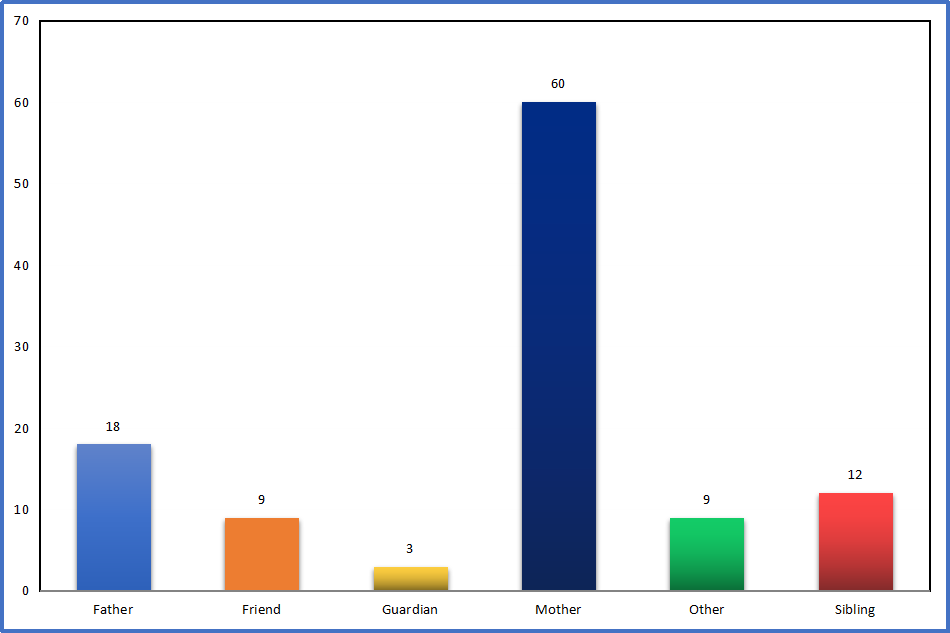
2.2 Respondent’s children category
The respondents answered the survey for their children of different age groups with 40.5% participation on behalf of the kids in the age group of 5–10 years, 32.4% participation on behalf of the kids in the age group of 10–15 years, 21.6% participation on behalf of the kids in the age group of 0–5 years and 5.4% participation on behalf of the kids in the age group of 15–18 years.
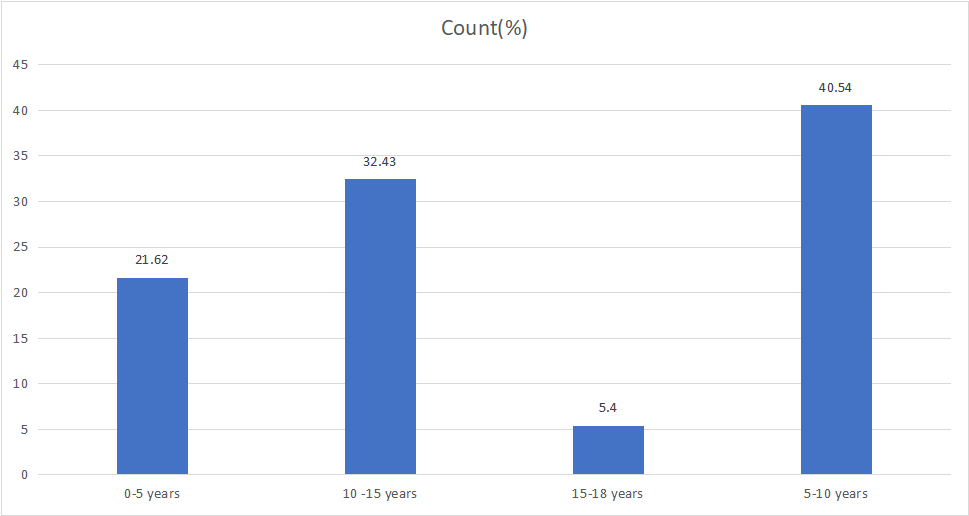
2.3 Respondents demographics(Geography)
Out of the total respondents, 48.6% are from Asia, 24.3% are from North America, and so on.
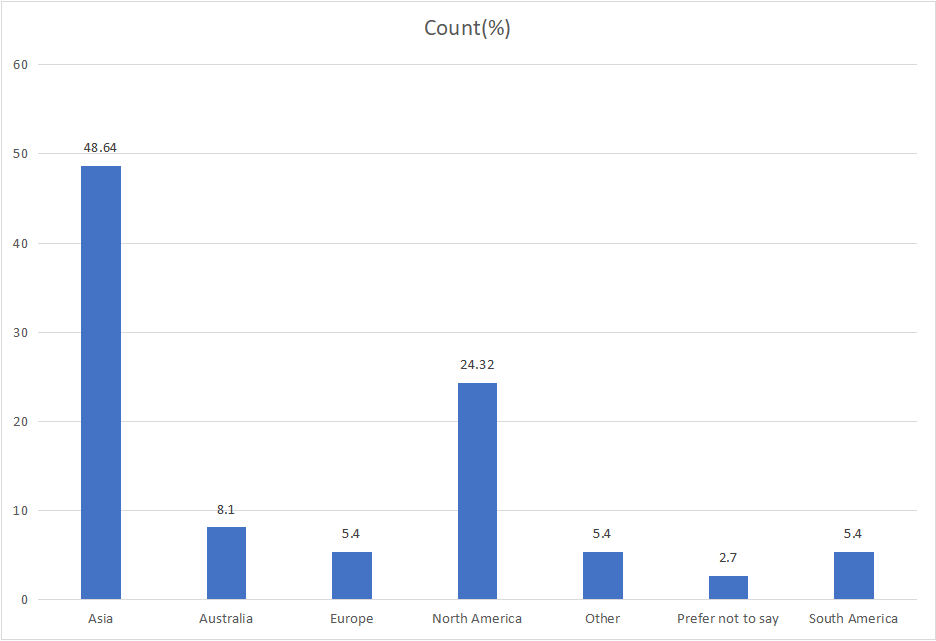
3. Key Insights into the study
3.1 Total Internet Usage
45.9% of the respondents answered that their kids spend about 0–2 hours /day in total on the Internet.
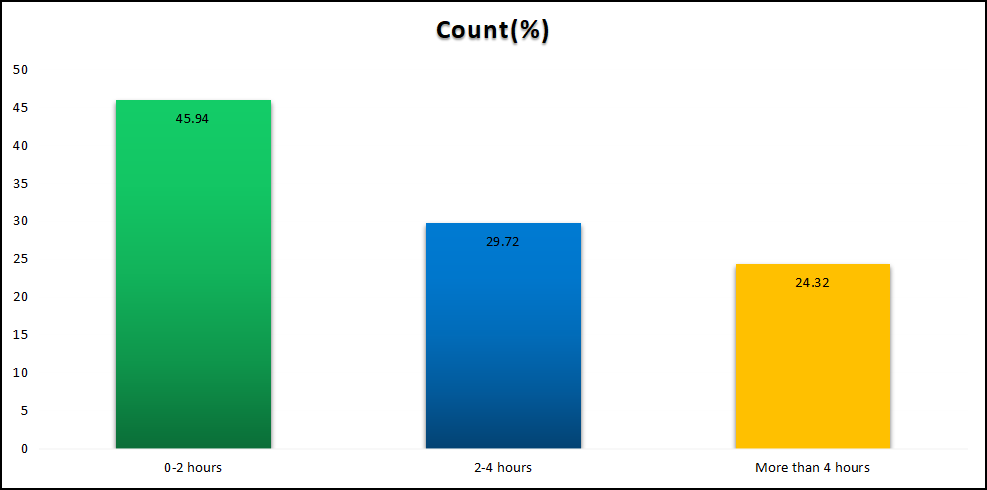
From the answers, we can see 40% of kids like to spend time on “Watching Cartoons/Videos/Rhymes”, 23% like to play games, 11% like to use Smart Edu Tech apps, and so on.
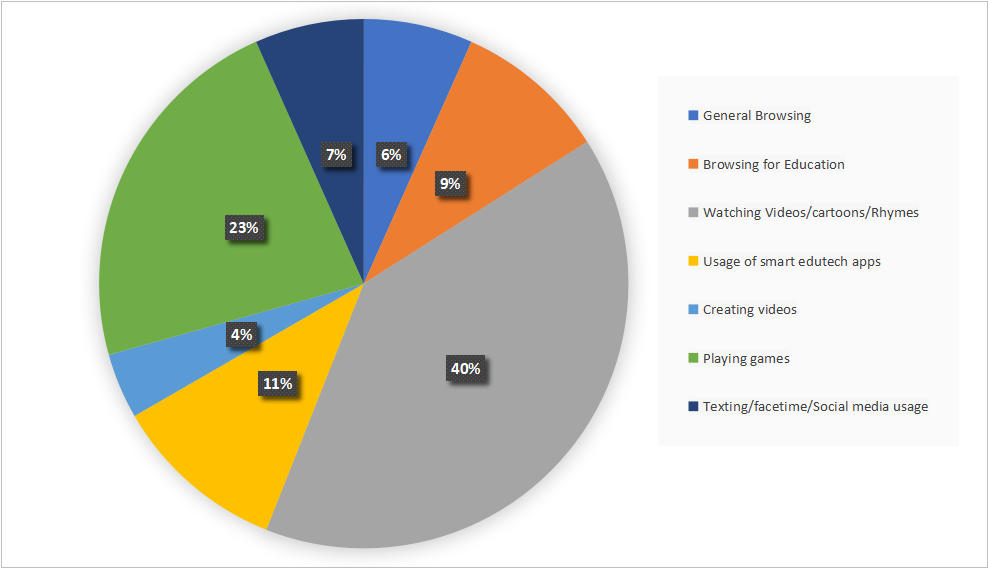
3.2 Gadgets Usage
We, parents often discuss “Oh! My kid will eat only when he sees TV/Tab, how to get rid of that? “ Well, it is us, who introduced the digital world to kids at an early age. Even, a 1-year-old knows, how to play his favorite rhyme on his favorite gadget these days.
In an attempt to find out the favorite gadgets of kids, we came up with the question “Choose your child’s list of gadgets that remain connected to the digital world?” and gave multiple options. The results show Ipad/Tablet is kids’ top favorite (28%), Mobile phone is the second top (27%), Laptop is the third favorite (19%)and Smart TV is in the fourth place with 13%.
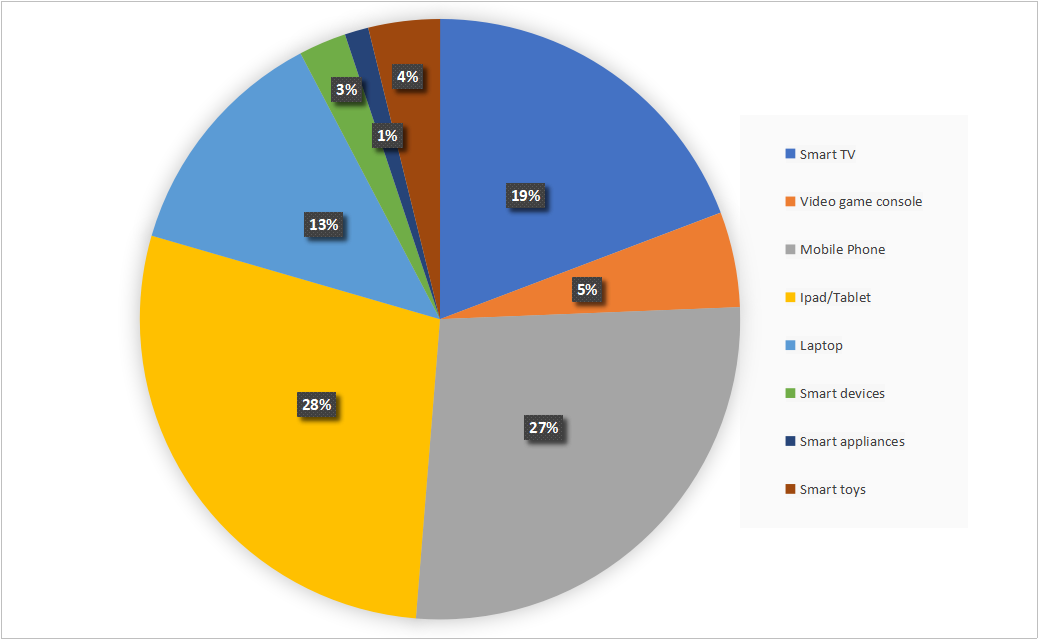
3.3 Awareness of children’s digital privacy
We want to find out the awareness of the privacy risks of a child in the digital world, and posted the question “Are you aware of the child’s digital privacy issues on the Web?” and below are the results.
3.3.1 Key Insights
54% of people answered “Yes”, whereas 29.7% answered, “NO” and a very little of 16% answered, “Not sure”. This shows most of the respondents are very much aware of the privacy risks of children in the digital world.
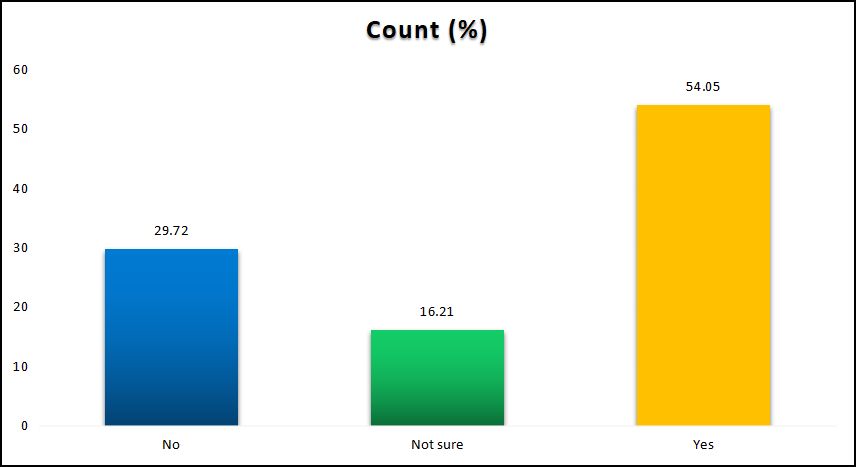
3.4 Discussing digital privacy threats with children
3.4.1 Key Insights
3.4.1.1 Out of the 54% respondents who are aware of the child’s digital privacy risks, we tried finding out who is the approachable person for kids when it comes to discussing their digital privacy issues. The results indicate that majority (70%) of respondents voted for mothers as the key person discussing the child’s digital privacy issues, followed by fathers(20%) and friends /teachers are the next in the list.
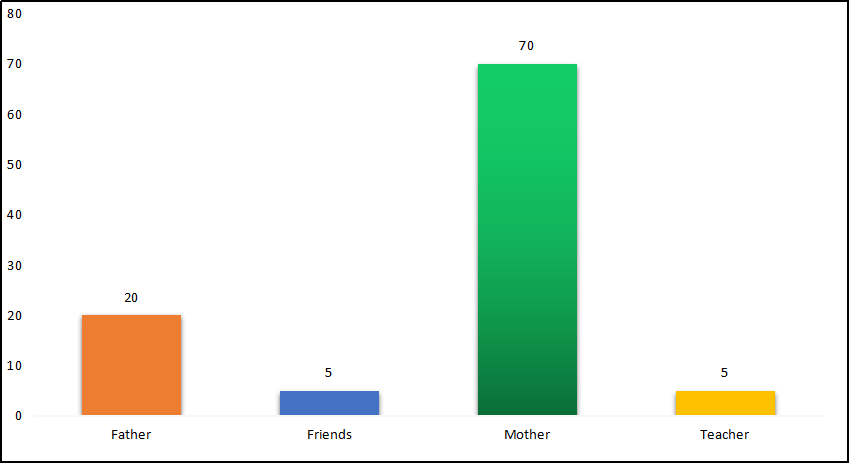
3.4.1.2 Opinion of Parents/Guardians on topics of children’s digital privacy threats
When it comes to digital privacy issues of children, there are few common options to protect them such as Talking to them on being digitally responsible citizens, educating them about the dangers of digital media, checking their Internet usage, etc. We posted a few of those options to the respondents of the survey and asked their opinion on the importance of those options.
The results indicate that 77.7% feels “Explaining the digital risks to the child” is extremely important, followed by 69.4% answering “Setting rules/guidance for child’s digital usage “ as the second most important factor, “Routinely monitoring the child’s activity” ranked third with 68.54% and “Encouraging the child to use Web with responsibility” ranked as the fourth most important factor.
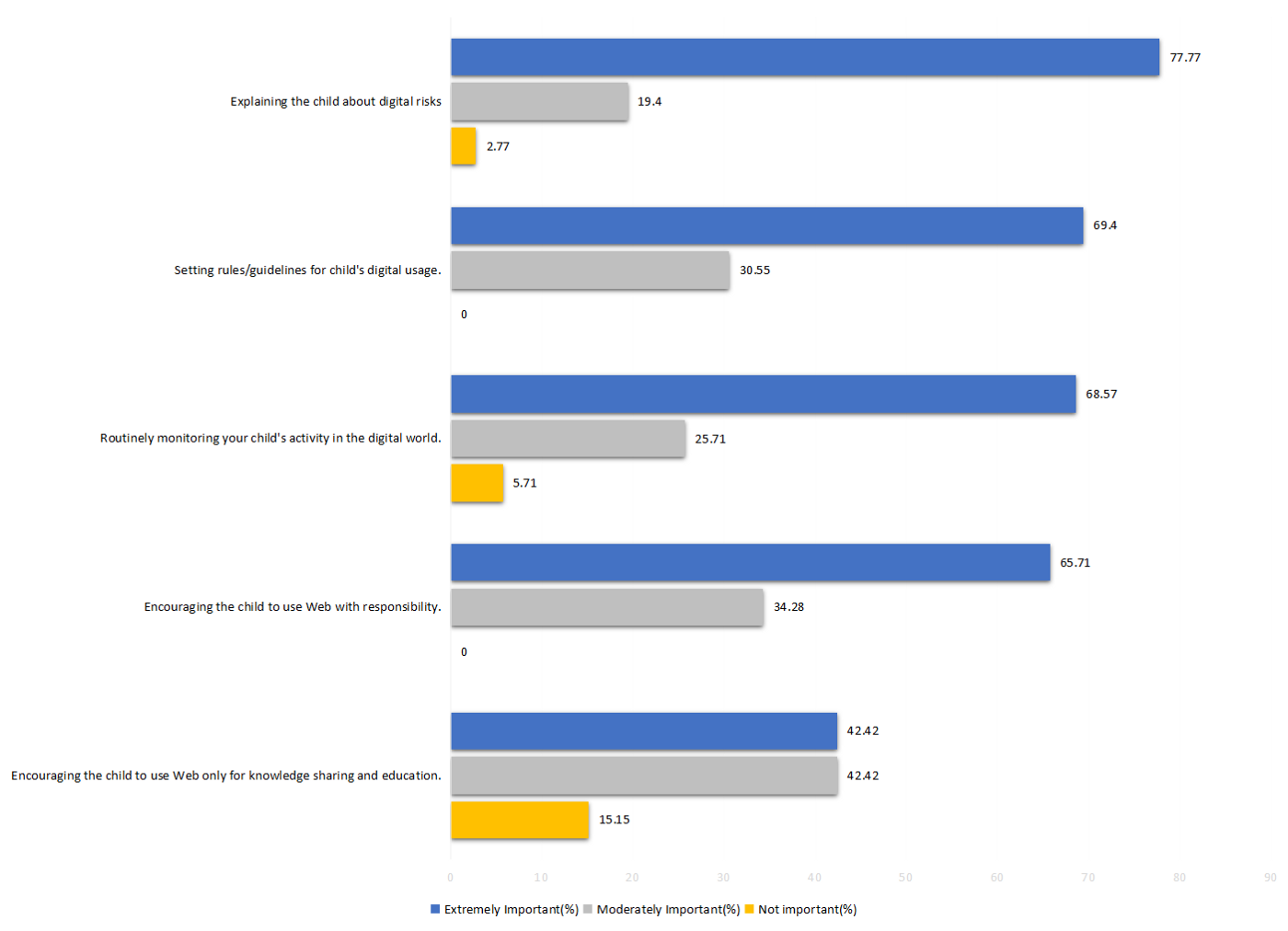
3.4.1.3 Comfort level of parents/guardians discussing digital privacy issues with children
The survey results indicate that most of the parents/guardians feel that discussing digital privacy threats with their children is very important (Refer to 3.4.1.2). We tried analyzing the comfort level of parents/guardians in discussing the same with their child and results are as below:
More than 50% of respondents feel comfortable talking about the digital privacy threats to their children and an average of 35–40% of respondents feel neither comfortable nor uncomfortable in discussing the digital privacy threats of kids.
Also, it is evident that the comfort level of parents/guardians in discussing the few threats are still low and it needs a big improvement. Out of such threats, “Talking about Sexual Predators” ranked as the topmost uncomfortable issue with 30.3%, followed by “Cyberbullying”(21%) and “Impact of Web on child’s behavior” (16.6%) ranked the third most uncomfortable issues to be discussed.
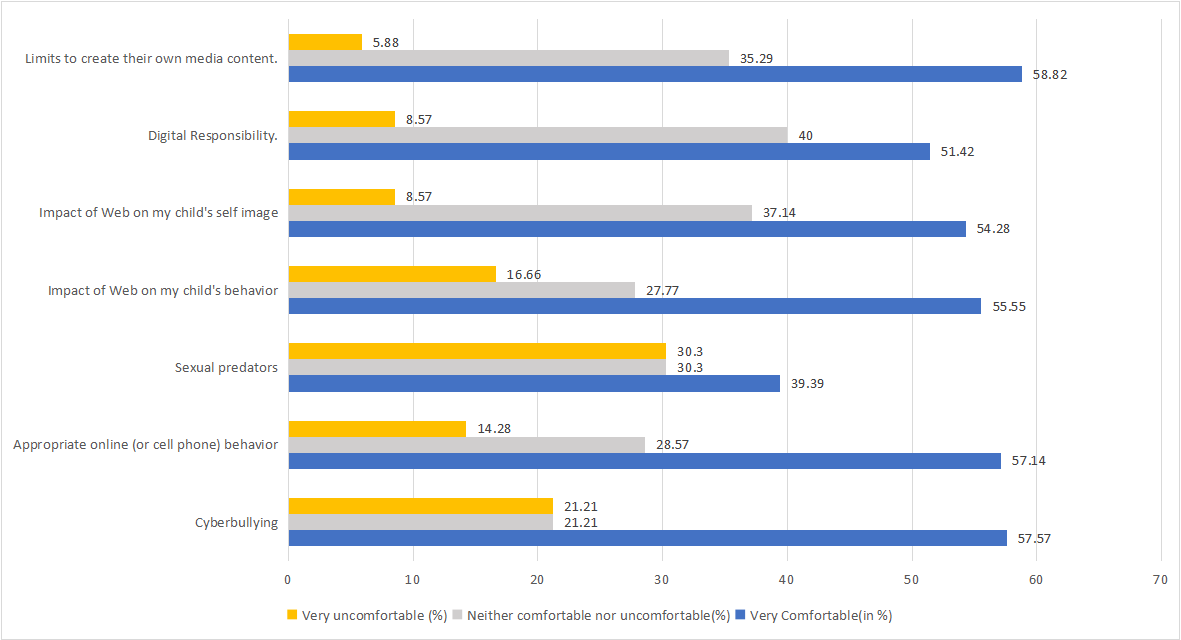
3.4.1.4 Conversation about the Digital Privacy issues of Kids
In an attempt to find out the conversations happening between kids and their parents/guardians on digital privacy issues, we came up with the question “Have you had any of the conversations listed below with your child.” and we gave multiple options.
3.4.1.4.1 Key insights
The results indicate that conversations on “Limiting the child digital media usage” ranked most, followed by conversations on “How online people or information may not be trustworthy” and so on. Having a healthy conversation about the digital privacy issues with the kids is important and the % of such conversations can be and should be improved by parents /guardians being friendly with the kids and being a digital role model for them.
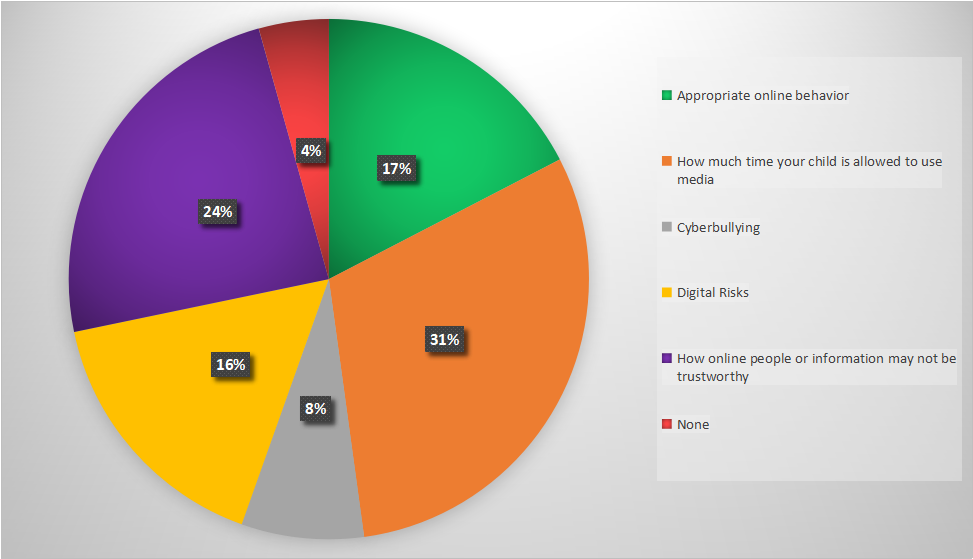
3.4.1.5 Digital Privacy at school
Schools are increasingly using software from third-party providers to teach, diagnose potential learning issues, and interact with students. This software includes online learning lessons, standardized tests, and 1:1 device programs. And the companies that administer the programs are typically allowed to collect, store, and sell your kids’ performance records. Hence adding internet privacy education as part of the curriculum can be a good idea. We asked the opinion of the respondents by asking the question “Do you want digital privacy to be taught in schools?” and the results are very good.
3.4.1.5.1 Key Insights
We are glad to see 91.9% answered “Yes” where very little 8% answered “No”. This clearly shows most of the parents/guardians want digital privacy to be taken care of and taught at school for kids.
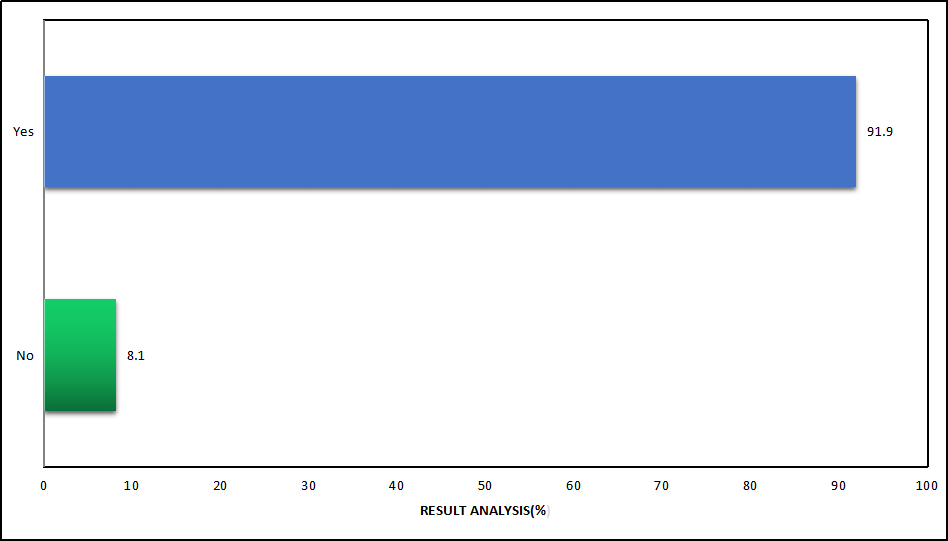
3.5 Awareness of Child’s Digital Privacy Laws:
There are worldwide laws that deal exclusively with online privacy protection for children.One such example is the US is COPPA. It imposes certain requirements on operators of websites or online services directed to children under 13 years of age, and on operators of other websites or online services that have actual knowledge that they are collecting personal information online from a child under 13 years of age. and we attempted to find out the awareness of such digital privacy laws among parents/guardians.
3.5.1 Key Insights:
The awareness of child’s digital laws is not that great with 54% answered “No “whereas a minimum of 27% answered “Yes” for the question “Are you aware of the Digital Privacy Laws available for kids?
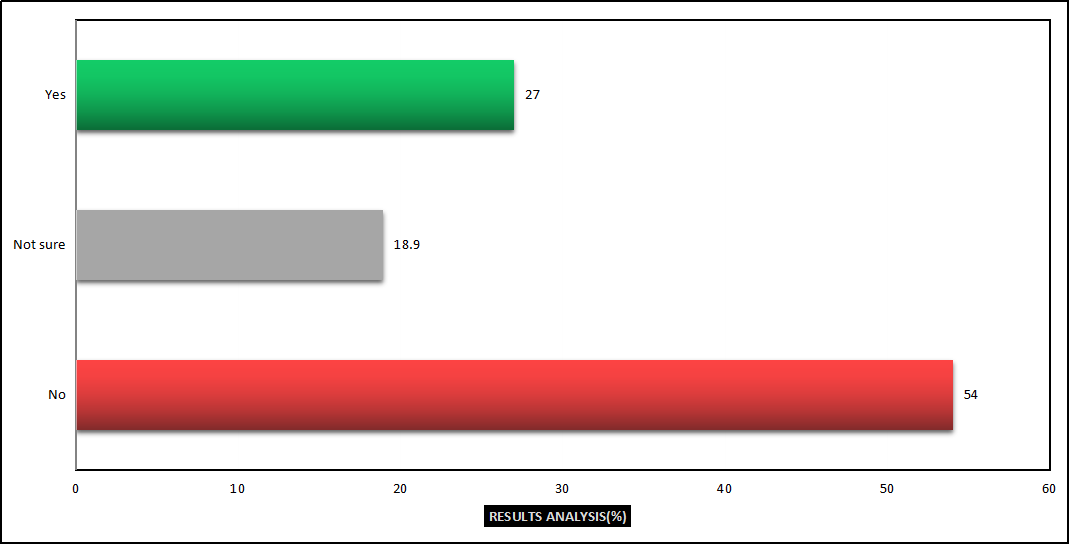
3.6 Parents/Guardians as a digital role model of kids
Children are quick to observe the happenings around them. It is good to be a digital role model to them instead of advising them to be digitally responsible. Hence, we posted the question “Have you tried to be your child’s digital role model?” and the key insights are below.
3.6.1 Key Insights
The results are indicating that 54% of respondents answered “No” to the question, whereas 45% answered “Yes”.
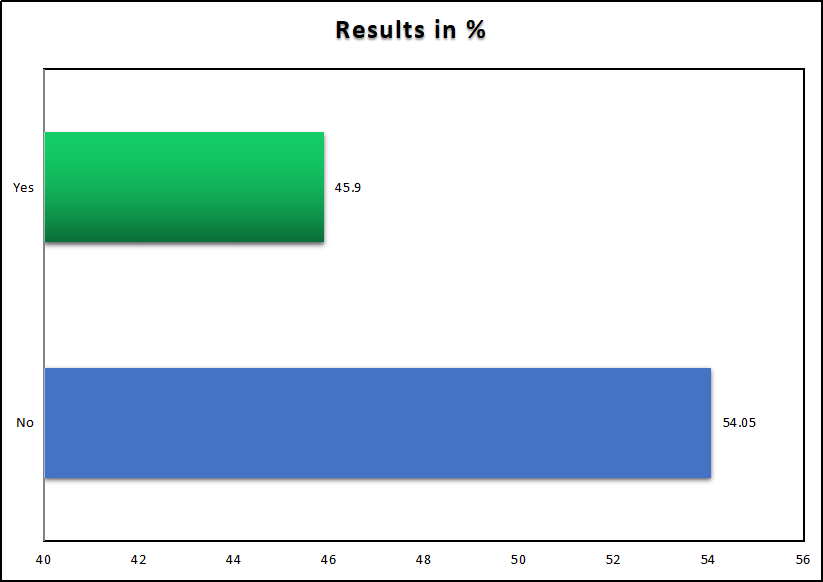
Also, 45% of respondents answered “Yes” have shared their ways of becoming a digital role model for the children and consolidated points are listed below.
- Reducing the screen usage /No screen usage in front of kids.
- Usage of mobiles only when necessary.
- Following the principle of practice and preach.
- Self-awareness about tech use, explicit rules, and expectations for use, involvement, and engagement in their use.
4. Summary:
Listed below are the overall summary of Insights related to the study.
- There is considerable awareness of children’s digital privacy risks and the potential impact.
- On the other hand, the parents/guardians are still not feeling fully comfortable in discussing digital privacy threats with the children.
- Children’s Internet usage is very wide with “Watching Videos/Cartoons/Rhymes” topping the list and “Ipad/tablet” is the most popular gadget among children.
- Digital Privacy threats to the children should be taught in schools and the awareness of children’s digital privacy laws has to be improved.
- It is really important to be a digital role model for kids and awareness about the same has to be improved.
4.1 Call-To-Action:
With the Corona Virus pandemic, the world is getting more digitized. Starting from online learning possibilities to the online meet-up with friends/family there are booming advancements in technology, and kids are becoming smarter every day. But the kid’s usage of digital media has to be monitored carefully to avoid privacy issues. I would say from my personal experience, it is us parents/guardians who have to set up an example for our kids.
Talk to kids, educate them about the dangers of digital media, also check their usage. Parents should go through privacy laws such as Children’s Online Privacy Protection Rule (“COPPA”) which is designed to protect kids’ privacy. It is always a good idea to switch to privacy focusing alternatives such as Brave, Duck Duck Go, or using apps built on platforms such as Blockstack.
To find out the list of more such DApps built across blockchain platforms, visit Dapp.com (The Cross-chain Dapp Store where everyone can discover, use, and enjoy apps with ease!) or App.co (The best place to discover Decentralized apps).If this study interests you, Check out our blog on “How to protect your kid’s digital privacy?”.
Let’s hope 2020 will be a great year with more increasing privacy awareness and a better privacy-focused Internet will be available with many great products.
5. Conclusion:
Thanks for reading! People like you make this survey great! Thanks for participating in the first research study of Children’s Digital Privacy Awareness. Hopefully, you learned something interesting — or may be found a few tips to be a digital role model for the children!Check out our other research blogs at BlockSurvey Blog. Also, If you have any questions, reach out to [email protected].
---------------------------------------------------------------------
About Blocksurvey
BlockSurvey is a privacy-focused platform to create surveys, polls, & forms with complete confidentiality. Through BlockSurvey, all your data is encrypted end to end and only you can see it. You own your data. It's your digital right. There are zero trackers and we keep you as anonymous to the data collectors. Our platform utilizes Blockstack and helps in maintaining privacy and anonymity, resulting in effective surveys and polls. Try out by creating your surveys, forms and polls with us.
